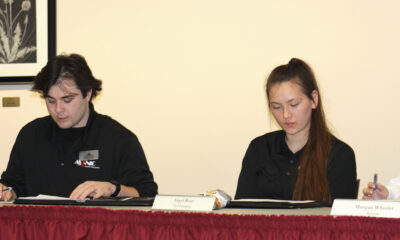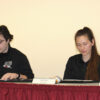North Idaho College, The Human Rights Education Institute and the Coeur d’Alene Tribe continue to address the recent artifact looting through educating the public.
NIC Vice President for Community Relations and Marketing Mark Browning said that recent incidents of artifact looting led to the formation of a public education forum called “The Facts about Artifacts.”
During this forum, state Archaeologist and Deputy Kenneth C. Reid and a group of historians will discuss the historical importance of the artifacts.
“We encourage everyone to get more information from state, tribal or federal historic preservation offices,” said Chief Allan, a Coeur d’Alene Tribal member and the chairman of the Coeur d’Alene Tribe.
The forum is scheduled for Tuesday, Feb. 19 from 7-8 p.m. in Lee Driftwood Bay.
Another opportunity to learn more about the significance of these artifacts is through an exhibit “Many Cultures, One World” this week at the Human Rights Education Institute (HREI) in Coeur d’Alene, that will display the history and features artifacts such as saddles, regalia and more.
Chief Allan said his tribe’s Culture and Language Departments plan to offer several workshops at HREI this spring and summer to supplement the exhibit, including workshops on beading, weaving, and archeology and artifacts.
The Coeur d’Alene Tribe’s territory covered nearly 4 million acres the region.
In a recent opinion written for the Spokesman Review, Chief Allan said his ancestors centered their lives on Lake Coeur d’Alene and its tributaries for thousands of years, and that their tribe works hard to preserve their cultural resources. He expressed concern of those in the community who use metal detectors to search for and potentially remove historic artifacts from the shores of Lake Coeur d’Alene.
President Joe Dunlap suggested that the college work put together a symposium for the community with the city, the Coeur d’Alene tribe and the State Historical Office to due to the strong level of public interest in looking for those artifacts.
Efforts for coordinating a symposium are still in affect.
Joe Dunlap said this potential symposium would be intended to teach students and community members about the laws regarding artifacts and the legal methods for searching and documenting them.
“We can go on and provide that education service to the community,” Dunlap said.
According to the Archaeological Resources Protection Act of 1979, searching for artifacts on campus, or on any public or Indian land, are against the law. Violators are subject to tribal or federal laws that protect historical and cultural artifacts.











